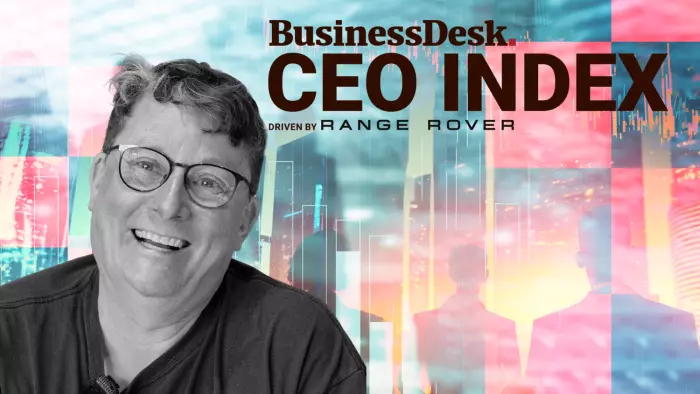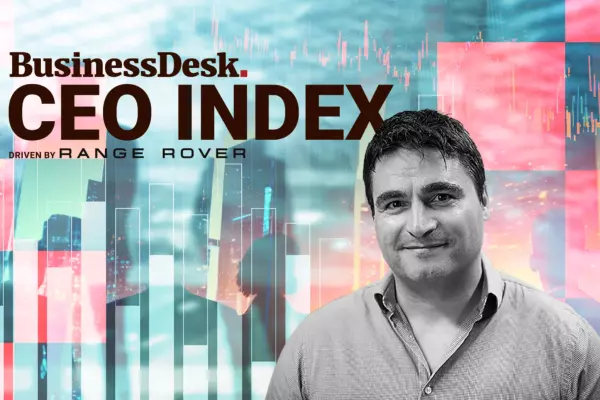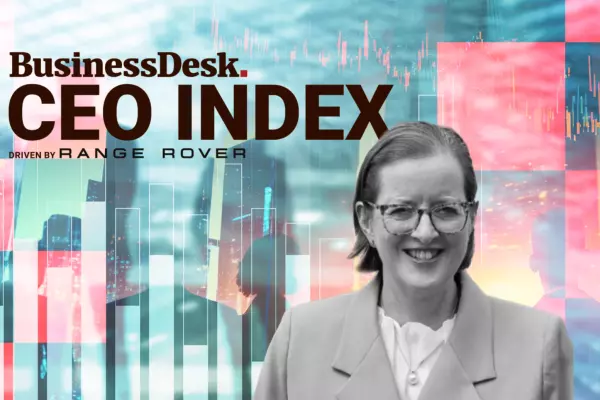Excellence in leadership – driving results with vision, integrity, and resilience – can be found in the private and public sectors and needs to be celebrated and recognised.
That was the essence of the inaugural BusinessDesk CEO Index – won by Wētā Workshop co-founder Richard Taylor. He took the top spot, but it could easily have been the little-known head of Customs, a famous listed company boss, or one of the visionary start-up founders.
Since its founding, BusinessDesk has covered the New Zealand political economy, recognising the impact of politics and the public sector on the wider economy, as much as reporting on the listed companies and often under-the-radar private firms and emerging start-ups.
The CEO Index spanned the familiar listed companies, private, emerging firms, and our public sector.
Get up to date fast. Join BusinessDesk's WhatsApp channel.
Taylor, in the private category, came overall top in the judging, seen as a leader who personified a tireless effort to promote New Zealand creativity and exports as well as his own company.
“Richard Taylor’s impact has been about getting us to think differently about what we could be and what the economy could look like, and how we can contribute economically as well as creatively. He then links these things together,” the independent judging panel said. He embodied what it was to promote and believe in NZ Inc, judges felt.
BusinessDesk staff started the CEO Index process with a long list based on their reporting and experience. More than 70 CEOs were then filtered against five criteria: vision, impact, innovation, resilience, and influence.
The judges, whose decision was final, took on the task of judging winners in each sector – listed company, private company, public sector, and startup – and then an overall winner: this year, Taylor.
Search for excellence
Excellence comes in many forms: our judges were clear that Christine Stevenson was simply superb heading NZ Customs; they admired the courage of startup winner Mario Wynands of PikPok; they respected Rod Duke, Mr. Briscoes. In the end, though, they went for someone they see as an ambassador for New Zealand and the idea that Kiwis can create globally significant companies based on creativity and keep them going and thriving.
“What Richard does is lead his company and team of talented people in a way that is completely himself,” says BusinessDesk editor Victoria Young. “He not only goes to bat for his company out in the world, but for the entire creative sector of New Zealand.”
Young says it reflected the importance of leadership across businesses under the spotlight, as well as the often less visible public service heads.
As Pattrick Smellie, the founding editor of BusinessDesk, says: “This launch edition of the CEO Index seeks to highlight qualities of leadership and inspiration that reflect New Zealand. We deliberately included commercial and public sector leaders … reflecting the importance of the public sector in our political economy, but also to highlight often unsung leadership among our senior civil servants.”
Read more about the shortlisted executives here and the process here. There’s a full profile of Sir Richard Taylor here.
Love is the Wētā magic
Taylor shared a little of his secret sauce: love: “If I were to write a self-help book, it would have one page and four lines on it. What I see as the critical component of what anyone does, whether you’re the president of a country, the father of a family, the CEO of a company, or the coach of a sports team, is, in order of importance: love of oneself, love of what you do, love of who you do it with, and love of who you do it for.”
Taylor leads Wētā Workshop, with 380 in Wellington and Auckland, with his wife and business partner, Tania Rodger, and David Wilks.
The core vision has always been constant, says Wētā Workshop chair Phil Royal, a former managing partner and board member of PWwC NZ. That is: to push the limits of creativity, craftsmanship, and storytelling from New Zealand to the world.
“Richard relentlessly conveys his vision through direct engagement and presence. He spends significant time on the floor, alongside his people, leading by example and translating big ideas into tangible creative outcomes,” he says.
“Rather than communicating through layers of management, he practises management by walking around, talking, observing, and sharing insights in real time,” says Royal.
Taylor shared a little more of his philosophy.
Remain a soft ball of clay
Taylor says Chinese people understand his attitude to love and work life. In fact, Taylor’s influence in China is perhaps the least understood part of his contribution to NZ Inc. Yet his charity work on neonatal health there has created links that include dining three times with China’s first lady, Peng Liyuan, the wife of Xi Jinping, and a famous performer in her own right.
“I've been working in China for 28 years, quite consistently, going up many, many times a year. I think of almost any country in the world, the Chinese people fundamentally understand the necessity to find love in your journey,” he says.
The most sophisticated Beijing businessman or woman will still burn incense at the office door, will still have totems to their spirituality because they have managed to stay connected in their business life to another tier of spiritual connectedness into the world as it is, says Taylor.
When it comes to managing Wētā Workshop and its seven business units, Taylor says: “I’ve always described ourselves as needing to remain a soft ball of clay.”
“If you allow yourself to become a hard block of wood, it could be argued that every possible effort by the government, by regulatory authorities, is trying to turn you, a small New Zealand business, into a hard block of wood, through compliance and regulation, for instance.”
The trouble is that when knocks come, it is hard to adjust your trajectory when you’re a hard block of wood.
“You have to be able to absorb the knocks, try to reshape, and re-sculpt the business model, the team, the process, and get back on your feet quickly.” Hence, the soft ball of clay.
Treasure your fans
A final message from Taylor is how important it is to value your fans or customers.
“It is surprising how many people are dismissive of the fans in our industry, yet without the fans, we would have nothing,” says the CEO.
“Without the core fans that are the passionate people that drive the fandom within the entertainment industry, allowing us to make collectibles, publish books and go to fan events, it would be very, very hard to have the level of sustainable, diverse business that we’ve been able to build,” he says.
“We genuinely love the people that love what we do out of a level of deep respect and also just camaraderie,” says Taylor.
The panel of independent judges was Air New Zealand chair Therese Walsh, Jarden co-head of investment banking Silvana Schenone, startup investor Suse Reynolds, and Institute of Directors chief executive Kirsten Patterson.
Here’s a snapshot of what they said about the other finalists:
Public sector: Christine Stevenson, NZ Customs: “She is widely known and upheld as providing phenomenal leadership. She is held in high regard and is pragmatic but curious.”
Listed company: Rod Duke, Briscoe Group: “He's been a little bit magic in leading an FMCG (fast-moving consumer goods) business that has weathered and delivered results for shareholders and customers, no matter what the economic context.”
Startup: Mario Wynands, PikPok: “[He] has quietly and powerfully shown that New Zealand and New Zealanders can build incredibly successful, innovative businesses that deliver joy and financial outcomes.”
Read more in the CEO Index here.















